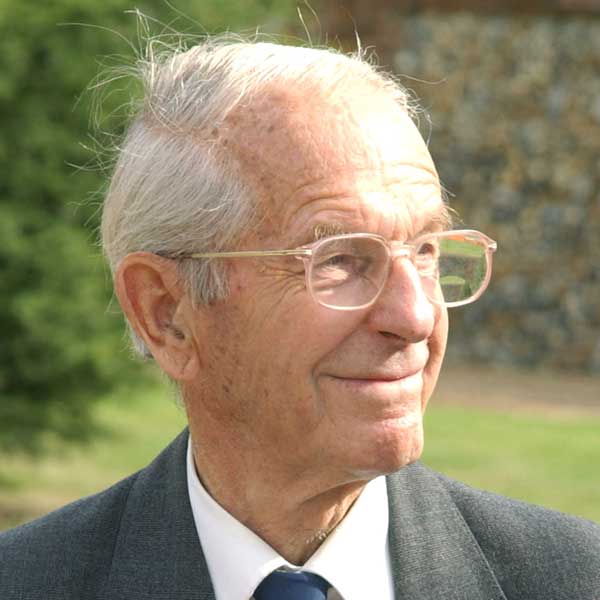Fred Sanger, 1918-2013

His achievements rank alongside those of Francis Crick, James Watson, Rosalind Franklin and Maurice Wilkins in discovering the structure of DNA. We are proud that he graciously agreed to allow our Institute to be named after him.
In research marked by two Nobel Prizes, he developed methods that allow us to determine the order of the building blocks of DNA and of proteins. This technique allowed the languages of life to be read.
Because of Fred’s work we have been able to interpret those languages and to use that knowledge for good.
“Fred was an inspiration to many, for his brilliant work, for his quiet determination and for his modesty. He refused most invitations for interviews, but often helped schools and students.
“Fred won two Nobel Prizes. His work for his second Prize, a method to decode DNA, has transformed our understanding of life on earth and is the foundation of developments in healthcare from understanding inherited disease to developing new cancer treatment.
“It was an honour for this Institute when Fred acceded to founding Director John Sulston’s request that we be named after him. Fred’s only stipulation was that ‘It had better be good’.
“That typically Fred response is our inspiration and will continue to be so.”
Professor Sir Mike Stratton Director of the Wellcome Trust Sanger Institute
Fred developed methods that allow us understand the blueprint of life. His findings spurred research that, today, brings benefits to patients around the world.
Without his method to understand the structure of proteins, we would not have efficient treatments such as insulin. Without his method to decode our genetic material, DNA, we would not have the treatments for breast cancer, melanoma and infectious disease that have been developed in recent years.
Our programmes to develop vaccines for malaria are built entirely on understanding DNA sequence, on Fred’s methods and their descendants.
Or, as he would say, carefully acknowledging his co-authors, on the method of Sanger, (Steve) Nicklen and (Alan) Coulson.
More information
A story about the 30th anniversary of Fred Sanger’s technique here.
Nobel Prize autobiography (1980)
Nobel Prize biography (1958)


